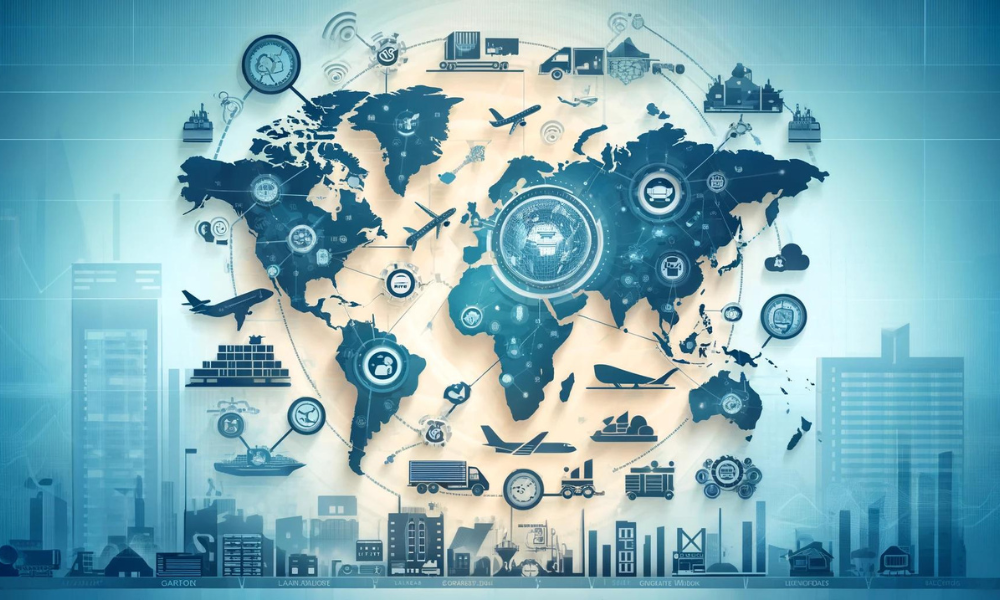Revealed – Allianz Trade global survey results

Revealed – Allianz Trade global survey results | Insurance Business Australia
Insurance News
Revealed – Allianz Trade global survey results
How do companies view the upcoming challenges in trade?
Insurance News
By
Kenneth Araullo
The Covid-19 pandemic, the invasion of Ukraine, and renewed Middle East tensions have created a challenging environment for exporters. In response, Allianz Trade surveyed over 3,000 exporters from China, France, Germany, Italy, Poland, Spain, the UK, and the US for the third edition of its Global Survey to determine if 2024 might offer some relief.
In 2023, 70% of companies anticipated increased business turnover from exports, but the year ended in a trade recession with unexpected demand slowdowns. For 2024, 82% of surveyed companies expect increased turnover from exports, particularly in consumer-related sectors like retail, household equipment, and computers & telecom.
Notably, nearly 40% of companies foresee a significant increase of more than 5% in 2024, an 18-percentage point rise from 2023.
Françoise Huang, senior economist for APAC and Global Trade at Allianz Trade, noted that after a year of recession, exporters are optimistic about a rebound in the latter half of 2024, driven by restocking of manufactured goods and increased global demand.
“Globally, 8 corporates out of 10 expect export prices to rise in 2024, thus supporting their export turnover. Our forecasts are more conservative: We expect global trade to rise by +2.8% in value terms in 2024 after a contraction of -2.9% in 2023. That’s significantly below the long-term average of +5%, reflecting the risk of disruptions in global shipping like the Red Sea crisis, as well as rising protectionism,” Huang said.
Optimism for Chinese exporters
Chinese exporters exhibit notable optimism, with 45% expecting turnover growth beyond 5%, and 11% predicting growth exceeding 10%. European companies appear less concerned about US-China tensions than their US counterparts. For example, 39% of companies in Germany and Spain, and 33% in France, plan to increase their presence in China, compared to 27% in the US. Sectors such as automotive, chemicals, construction, metals, and textiles are prioritising expansion in China.
Despite their optimism, exporters remain cautious about risks affecting their international development. Geopolitical risks, shortages of inputs/labour, and financing issues are primary concerns, with non-payment risk remaining significant.
Aylin Somersan Coqui, CEO of Allianz Trade, mentioned that close to 70% of companies globally receive payments within 30 to 70 days, with the UK, France, and the US showing slightly higher figures.
“In a context of lower growth, trade disruptions and geopolitical uncertainty, 42% of corporates are now expecting the length of export payment terms to increase in the next six to twelve months,” Coqui said. “Longer payment terms mean stronger pressure on cashflow, and the situation might even worsen. Moreover, 40% of respondents are expecting non-payment risk to rise in 2024. This is in line with our forecast for global business insolvencies to rise by +9% this year.”
What are the top trade concerns for businesses?
While 53% of companies are considering relocating supply chains due to geopolitical concerns, fewer are taking concrete steps. The top risks identified include supply chain structure issues, geopolitics, and protectionism, followed by ESG-related risks.
Ano Kuhanathan, head of corporate research at Allianz Trade, observed that upcoming elections in major economies are contributing to rising geopolitical risks and uncertainties.
“In this context, companies are in wait-and-see mode, mostly focused on upcoming national elections. That said, supply-chain exposure can change the risk perception: by and large, companies with long supply chains and more than half of production located abroad are most worried about an intensification of the US-China trade war,” Kuhanathan said.
Diversification is seen as the main strategy to build supply chain resilience, though it introduces new risks and complexity. For example, 48% of US exporters with production in China are considering alternatives in Asia-Pacific or Latin America, yet they remain indirectly exposed to China due to its pivotal role in global manufacturing.
Despite some companies planning to find alternatives to China, over one-third intend to increase their footprint there. For those seeking alternatives, Asia-Pacific is the preferred region, followed by Western Europe. Within Asia-Pacific, ASEAN is the top choice, with Japan, India, Taiwan, South Korea, and Australia also being considered.
Supply chain sustainability is gaining importance, with 72% of respondents responsible for both supply chain and ESG. However, progress on climate targets is slow, with only 27% of companies believing their ESG actions have significant business impacts. Key actions include shifting to sustainable logistics, developing sustainable products, and improving climate resilience.
“76% of respondents state that their company has a clear plan to transition out fossil fuel, regardless of the prices’ fluctuation. This is a big step forward: companies are now focusing on structural initiatives rather than on short-term actions. But there is still a long way to go: nearly 2 out of 3 companies plan to reduce emissions by only 1 to 5% in the next 12 months, which falls short of the effort needed to reach the net-zero target by 2050,” Coqui said.
What are your thoughts on this story? Please feel free to share your comments below.
Related Stories
Keep up with the latest news and events
Join our mailing list, it’s free!






